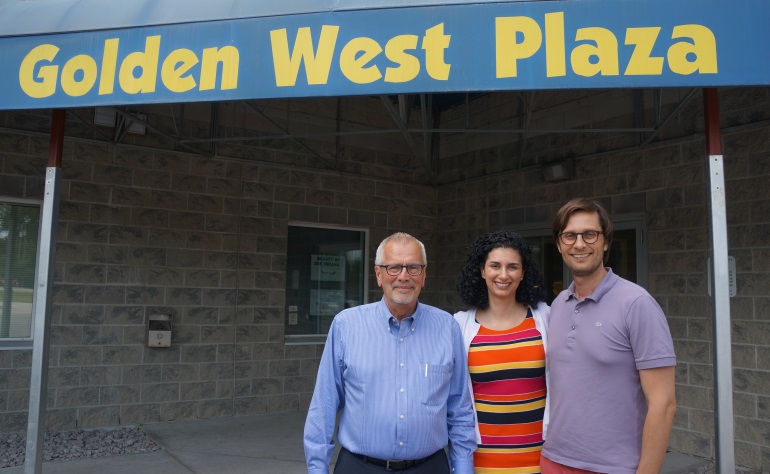A representative of the United Nations High Commissioner for Refugees visited Emerson Thursday afternoon to evaluate the fluctuating numbers of border crossings taking place.
According to federal numbers, Manitoba saw 105 border crossings in July, down from 195 in March, and Jean-Nicolas Beuze is wondering why that is. He was also interested in learning how the border crossing system works, and what can be improved.
“We want to understand what the profile is of people coming, but also what are the processes in place by the [RCMP] and the Canadian Border Services in terms of ensuring people who cross, whether through regular or irregular means, are well taken care of, and can enter the asylum process before the Canadian and Immigration Refugee Board,” said Beuze.
He said, based on what he saw on Thursday, he thinks the border services are strong and well-managed. He added, during his visit to Manitoba, Quebec and British Columbia, he was impressed by the empathy and hospitality shown to asylum seekers by Canadians.
“I think it’s the local integration which is really the strength of this province … having community based organizations supporting refugees is really the key to the success,” he said.
Additionally, he thinks, there is no need for people to panic, or to be overwhelmed by the situation as things are under control.
“It’s completely manageable. There is no crisis; Canada is not going to collapse. People are being screened from a security point of view, people are being screened from a public health point of view, and then they will get entered into the system.”
However, he urges Manitobans to keep an open mind, and to consider the circumstances asylum seekers experience before and after leaving their country of origin.
“The decision to leave one’s home is a very difficult one. It’s not one that anyone takes lightly … for those people coming to Canada it is not a question of getting a better life; it’s a question of survival.”
Beuze called on the Canadian government to do more in terms of gathering additional resources and employing them by helping more asylum seekers to resettle.
Currently, there are 1.2-million refugees in need of resettlement, and Canada will take in 9,000 of them this year, said Beuze.


















